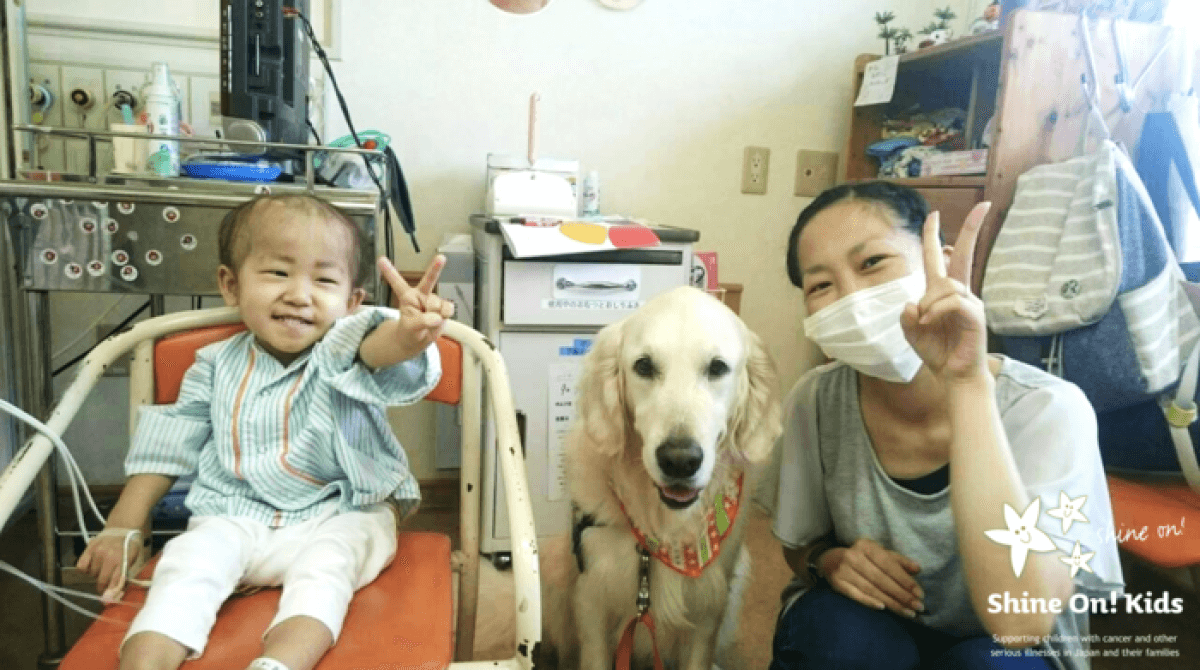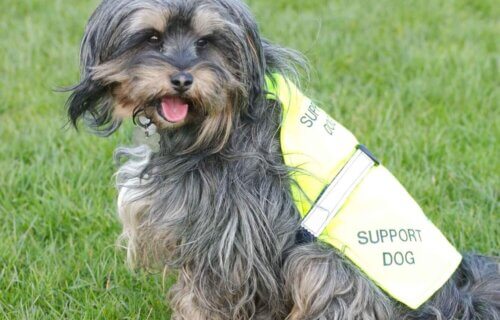TOKYO, Japan — Therapy dogs in children’s hospitals significantly uplift the spirits of both patients and staff, a new study reveals. Recently, dogs have helped to soothe children in various countries receiving their COVID vaccinations. This recent study confirms that these canine companions indeed offer essential support during challenging medical experiences.
The researchers from Japan report that the most profound impacts take place in palliative care — easing suffering among patients with serious or terminal conditions. A considerable majority of the new study, approximately 73 percent, indicated that therapy dogs were “very often” or “always” beneficial during terminal phases. Similarly, these respondents confirmed that full-time “hospital facility dogs” (HFDs) consistently assisted in gaining patient cooperation.
The majority of participants also claimed that these animals alleviated their workload and supported children struggling with schedule alterations. Additionally, they observed that children became more expressive and communicative following their interactions with the dogs.
Natsuko Murata-Kobayashi, the lead author and a representative of the Tokyo-based charity Shine On! Kids says that a full-time model with HFDs and nurse handlers offers several benefits in supporting patients in children’s hospitals.

These findings are based on a survey conducted with approximately 430 medical staff members at Shizuoka Children’s Hospital. Of these, 270 directly observed the activities of HFDs. Previously, researchers have found that therapy dogs can assist children dealing with eating disorders and learning difficulties and have even boosted adults’ recovery from strokes.
Murata-Kobayashi notes the significance of terminal palliative care provided by facility dogs is highly valued by doctors and nurses.
“Through accumulating evidence from research, we aim to contribute to the broader adoption of facility dogs in children’s hospitals both domestically and internationally,” the study authors say in a media release.
The study, published in PLoS ONE, follows previous research indicating that interacting with dogs stimulates the production of oxytocin, often referred to as the “cuddle hormone.” This interaction can alleviate stress and improve the immune system. Patients admitted to emergency departments in Canada reported decreases in pain levels of up to 43 percent after spending only a few minutes with a spaniel named Murphy. Associated feelings of anxiety were nearly cut in half.
Hospital facility dogs (HFDs) are professionally trained dogs, distinct from volunteer therapy dogs due to their specialized training and work capacity. They are typically cared for by medical professionals and accompany them to work each day. The first HFD team in Japan began their service in 2010 at Shizuoka Children’s Hospital, collaborating with the non-profit organization Shine On! Kids.
You might also be interested in:
- Canine clarity: Petting therapy dogs can help stressed college students think clearly
- Therapy dogs can help teach kids life-long social skills
- Best Online Therapy Services: Top 5 Virtual Counseling Programs, According To Experts
South West News Service writer Mark Waghorn contributed to this report.

